
Grocery shopping is one of our daily chore.Despite the fact that we are familiar with it like the back of our hands, the current economic climate is making it harder and harder.
Consumers are baffled at the rising prices of groceries. Inflation rates for food were 7.03% and 6.70% in June 2023, compared to 6.31% and 6.07% and 5.09% and 5.16% in May 2023, respectively, and 5.16% and 7.00% in the same month of the previous year.
The extra burden of buying groceries is visible from far. Not to forget, with may festivals, such as Raksha Bandhan & Diwali, coming up in near future, some additional expenditure is unavoidable. Buy by being a little organized, saving money on groceries while keeping the spirit of the celebration alive can be simpler than you think.
With some simple planning and smart shopping strategies, you can cut your bill in half and still enjoy delicious, nutritious meals. Have you ever walked into the store without a list and impulse bought your way through the aisles? Me too, and our budget certainly felt the hit. No more of that. This time, we’re going in with a game plan. We’ll make a meal plan, check out weekly ads to find the best deals, stock up on staples, and avoid pre-made snacks and bottled drinks. By shopping seasonal produce and buying in bulk when possible, we’ll keep costs low. With a few reusable bags, containers and an energy-efficient approach to cooking, saving money and reducing waste become second nature. Get ready to turn grocery shopping into a fun challenge instead of a budget buster. Our wallets and the planet will thank us.
1- Plan Your Meals before Grocery Shopping: Do Organised & Necessary Shopping
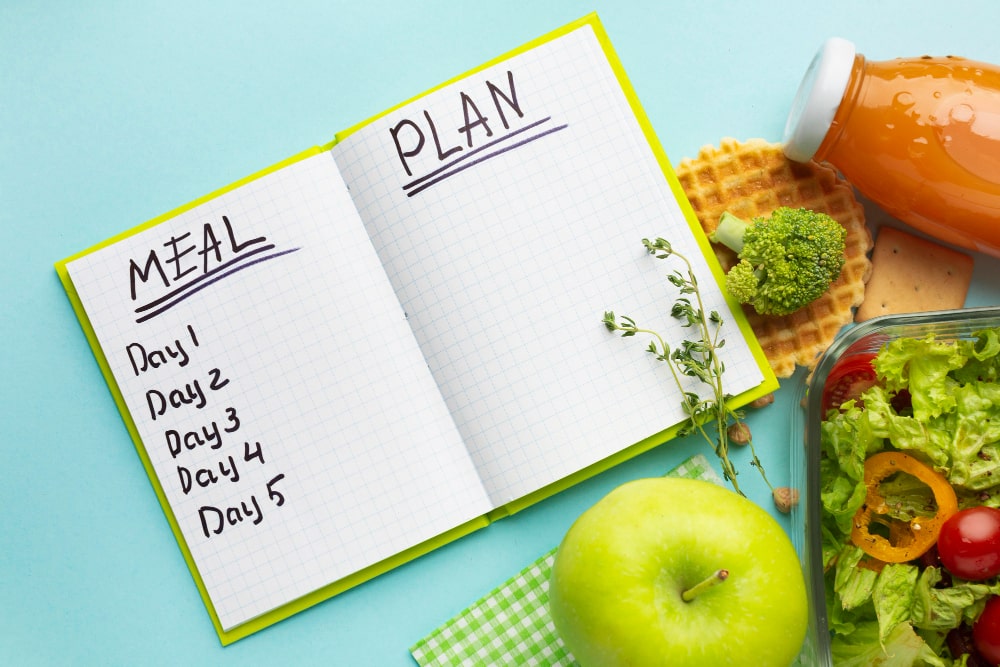
- Planning your meals ahead of time is key to saving money on groceries. Sit down each week and figure out what you’ll be cooking for dinner – leftovers are perfect for lunch the next day.
- Make a list before heading to the store and only buy what’s on your list. Sticking to a list helps avoid impulse purchases and ensures you only buy what you need for the week.
- Compare prices at different stores to find the best deals. Don’t be afraid to visit multiple places if it means big savings. Ask about loyalty programs and clip coupons to save even more.
- Buying in bulk is great for non-perishables. Look for family size, club packs, or stock up when items go on sale. Divide into portions and freeze what you won’t use right away.
- Produce that’s in season is usually more affordable. Shop at local farmer’s markets or stands for the freshest picks at lower costs. Avoid pre-cut or packaged fruits and veggies which tend to cost more.
With some easy planning, you’ll cut your grocery shopping bill in no time and feel good about the money you’re saving each month. Meal prep and bulk cooking on the weekends make it even easier to avoid expensive takeout on busy weeknights.
2- Shop Smart: Buy in Bulk, Compare Prices and Use Coupons
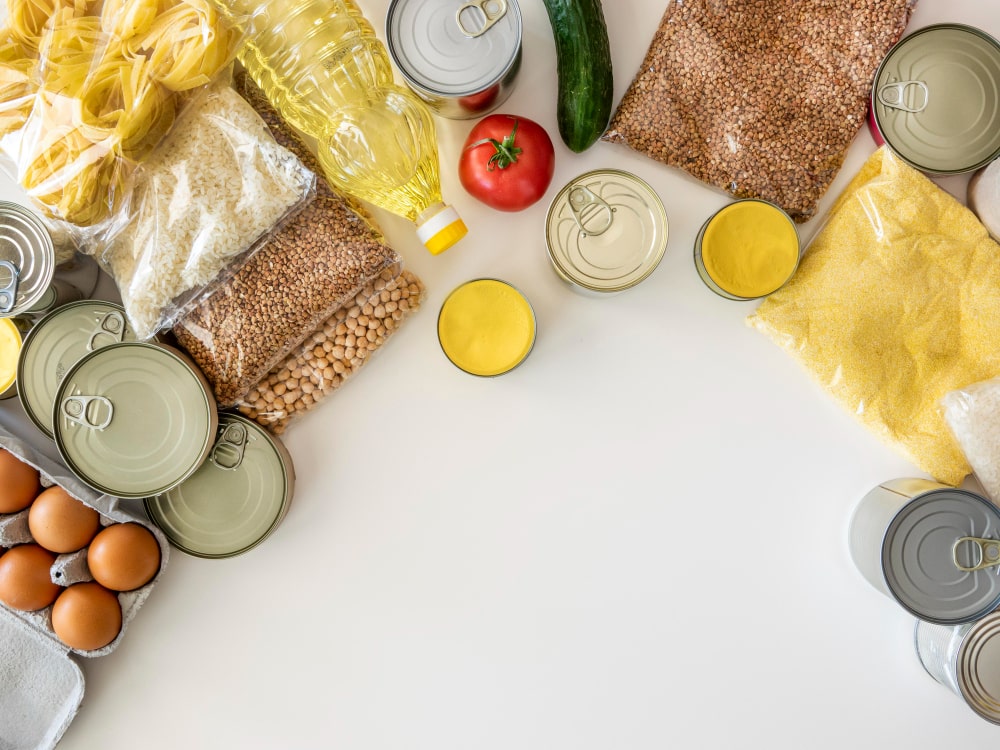
- Shop smart by buying staples in bulk, comparing prices, and using coupons. Bulk items like rice, beans, nuts and dried goods have a long shelf life and save you money. Compare prices online or at different stores to find the best deals. Loyalty programs and coupons can save you 10-30% on select items.
- Check weekly ads to find the best prices on produce and use coupons on brand name goods. Stock up on non-perishables when they’re on sale. Shop less frequently, maybe only once every two weeks, to avoid impulse buys and save time.
- Buy generic or store brand items which often cost less with similar quality. Avoid pre-cut or packaged fruits and veggies which can cost double. Whole foods also tend to last longer.
- Food waste costs the average family hundreds per year. Plan meals, use leftovers, and freeze excess food to avoid spoilage. Reusable bags, containers and water bottles are budget-friendly and environmentally friendly.
Making meals at home using whole ingredients is cheaper and healthier than eating out or buying pre-made food. One-pot meals, batch cooking, and meal prepping on weekends save time and money. This idea works really well for new moms and working women. Make it a family event, include your husband and give him a fair chance to stand beside you without any hesitation.
3- Sustainable Grocery Shopping: Buy Seasonal, Local, and Unpackaged

- Buying seasonal produce that’s locally grown and sold loose, rather than pre-packaged, is better for the environment and your budget.
- Frequent your local farmer’s market or food co-op and buy fruits and veggies that are currently in season in your area. Not only will they be fresher and taste better, but seasonal produce is often cheaper since there’s greater supply. You’ll also be supporting local farmers and reducing the carbon footprint of your food by avoiding long-distance transport.
- Look for unpackaged goods like loose leaf tea, coffee beans, grains, and legumes that you can scoop yourself into reusable containers. Avoid pre-washed salad mixes and veggies in single-use plastic bags. Buy the whole ingredients and wash and chop them yourself. It may take a few extra minutes but will save lots of unnecessary plastic packaging and food waste.
Making sustainable choices in how and where you shop makes a big difference. Your wallet, community, and planet will thank you.
4- Cook Smarter: Use Energy-Efficient Appliances and Meal Prep

- Cooking smarter is one of the easiest ways to save money on groceries. Use energy-efficient appliances like slow cookers, rice cookers and microwaves when possible. They require less energy than a stove or oven. Meal prepping on the weekends and cooking in bulk is also helpful. Make a big pot of chili, soup or pasta sauce and portion it out for meals throughout the week. Freeze leftovers for up to 3 months.
- Not only does this save time during the week, but it also means you’re not running the oven or stove every night for dinner. Using a toaster oven or convection oven instead of a full-size oven is another money-saving trick. They heat up faster and use less energy.
- When you do use the stovetop or oven, make the most of it by cooking multiple meals at once. Roast a whole chicken and vegetables, then use the leftovers in enchiladas, sandwiches, and soup during the week. One meal becomes 4 or 5! Little changes like these in how you cook and prepare food at home can significantly lower your utility bills and grocery shopping budget over time.
5- Reduce Food Waste to Stretch Your Grocery Budget Further

Reducing food waste is one of the easiest ways to cut your grocery shopping bill. Plan your meals around ingredients you already have and make the most of leftovers.
Shop your fridge first
- Before hitting the store, take an inventory of what you have on hand. See what you can use up in your meal planning. Make a list of what’s needed to supplement what you have. This avoids buying duplicates of what you already have.
- Use up leftovers in creative ways, like turning leftover rice, beans and salsa into burritos or leftover veggies into soup or stew. Don’t throw unused food into the trash or let it spoil in your fridge. Planning helps avoid waste.
- Composting food scraps you can’t eat helps create nutrient-rich soil for any plants you may have. Some cities and towns also offer food waste pickup services to reduce waste in landfills. Using what you have and making the most of it helps your grocery shopping budget go further.
6- Make a Grocery Shopping List & Stick to It
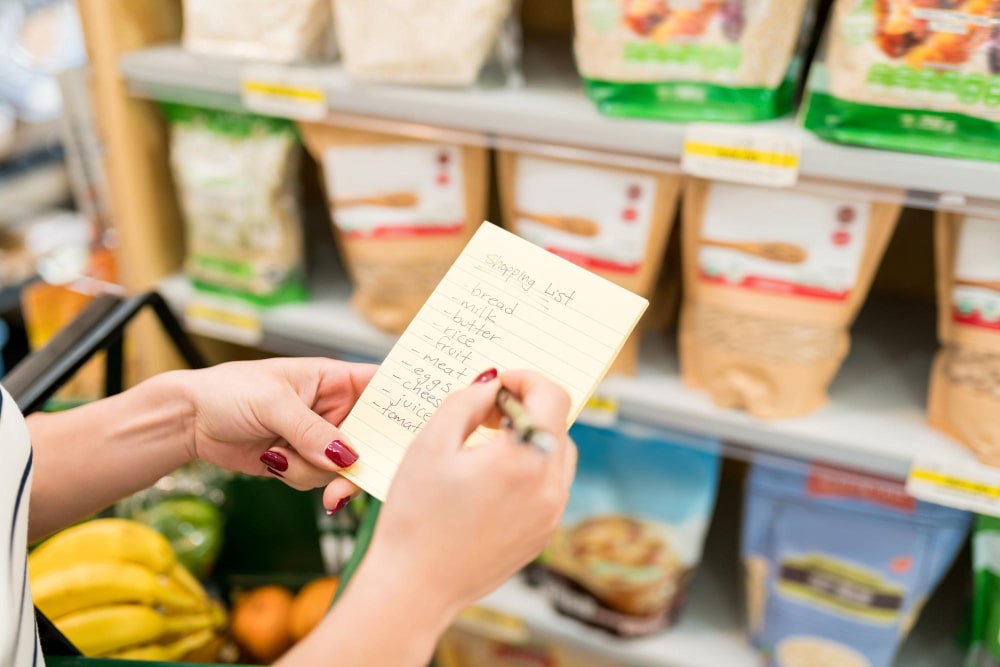
- When you head to the grocery store without a list, it’s easy to make impulse buys and forget things you actually need. Making a list before shopping and sticking to it is one of the best ways to save money on groceries.
- Sit down and plan your meals for the week, then compile a list of all ingredients you’ll need. Check your fridge and pantry first to avoid buying duplicates. Group items on your list by category so you can efficiently navigate the store. Buy only what’s on your list – avoid impulse purchases! Meal planning and list making will save you time and money. You’ll waste less and eat healthier too.
7- Grocery Shopping in Bulk: Analyse, Categorise and Shop
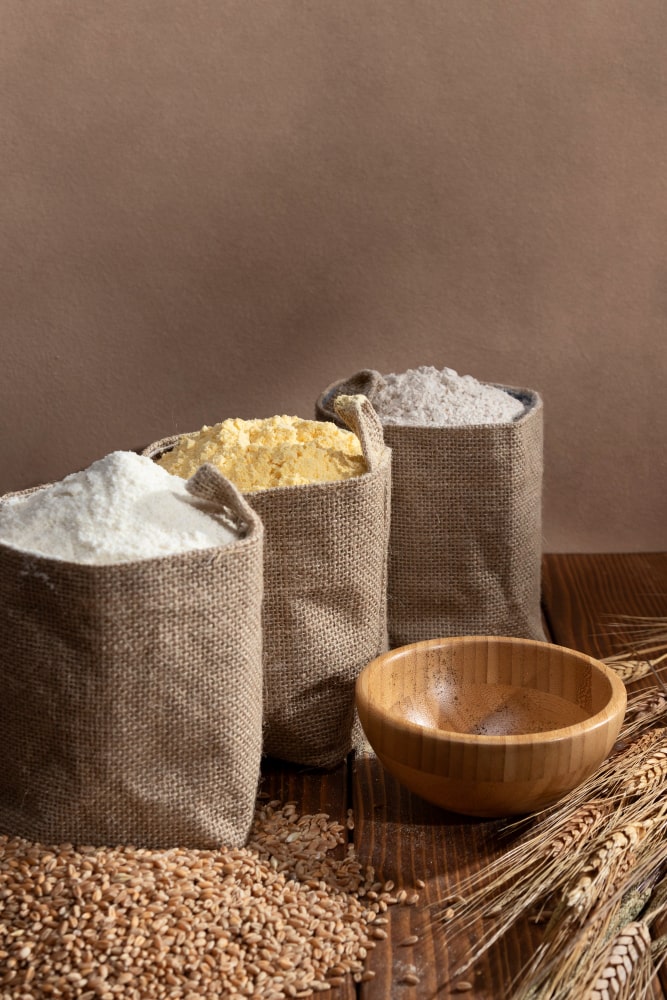
Once you’ve made your meal plan and shopping list, it’s time to head to the store. For the best deals, buy non-perishable ingredients in bulk. Things like:
- Rice, beans, lentils, and grains: These have a long shelf life and can save you lots of money when purchased in larger sizes. Look for family-size bags or boxes.
- Floor and Things Made with Floor: A big packet of 10 Kg is the best buy for a family of 3 to 4. For kids, a larger box of pasta is usually the best value. Stock up when it’s on sale.
- Dry Fruits and Oils: Dry fruits are best to be bought online and Oils have a long shelf life. Buy online and in bulk.
- Spices & Beverages: Spices stays fresh for a long time in freezer. Tea, coffee etc. should only be bought in large sizes as they have a huge price difference between small and big packets.
- Condiments: Ketchup, mayonnaise, soy sauce, and salad dressings typically have a long shelf life. Buy the biggest sizes you can find.
When shopping in bulk, be sure to check the unit price to compare the best deals. And have plenty of airtight storage containers on hand so your bulk items stay fresh after opening. Buying larger sizes, especially of non-perishables, is one of the easiest ways to slash your grocery shopping bill.
8- Buy Seasonal Products: Healthy and Reasonable

- Buying produce that’s in season is one of the best ways to save on groceries. Seasonal fruits and veggies are usually cheaper since there’s more supply. They also tend to be fresher and more flavorful.
- Shop your local farmer’s market or farm stand for the best deals on seasonal produce. You’ll find lower prices than the grocery store, plus you’ll be supporting local farmers. If buying from a grocery store, check their weekly ads to find sales on seasonal items. Stock up on favorites like tomatoes, corn and berries in the summer or squash, apples and broccoli in the fall.
- Eating with the seasons also means your diet will be more balanced. You’ll get a variety of nutrients by enjoying produce at its peak. Most seasonal crops are also more sustainable and environmentally-friendly since they don’t require artificial heating or lighting to grow.
9- Avoid Super-Expensive Products: Rearrange Smartly
- Avoid super-expensive specialty products and you’ll save big. No need to buy the pricey artisanal olive oil or imported cheese when more affordable options will work great. Opt for store brands or less expensive alternatives. If there’s something you just can’t live without, buy it only occasionally as a treat.
- Also, shop smartly by comparing prices for the best deals. Don’t assume that warehouse clubs always offer the lowest price. Sometimes regular stores run sales that beat even the big box shops. Compare prices online or use an app to find the best value before you shop.
- For the best prices on produce, check out your local farmer’s market or ethnic grocery stores. They often have lower overhead so can pass on savings to you. And if you have space, stock up on sale items and freeze or can them yourself. Homemade jam, pickles, pasta sauce and soups are thrifty and taste so much better than store-bought.
10- Local Markets & Street Vendors: Reliable, Negotiable and Fresh
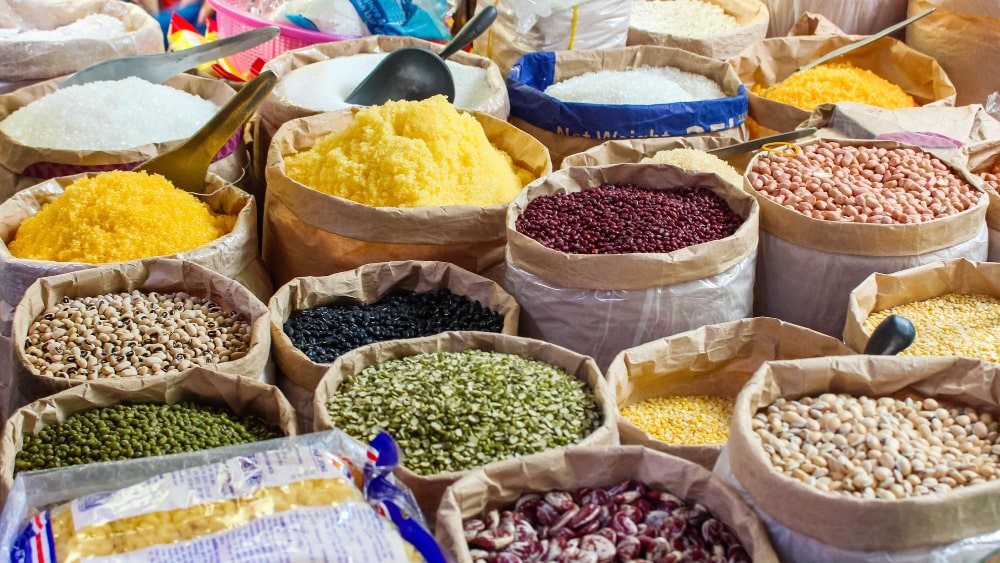
- Visiting your local farmers markets and street vendors is a great way to find fresh, seasonal produce at lower prices. These local shops often have lower overhead costs than big supermarkets, so they can pass the savings onto you. Many vendors are also open to haggling – don’t be afraid to negotiate the best deal on bulk items or imperfect produce that still tastes great.
- Local markets and carts also provide more opportunities to discover new or exotic fruits and vegetables you may never have tried before. Speaking with the vendors themselves, you can get advice on the best ways to prepare and cook their specialties. Some may even share family recipes they’ve been making for generations.
- By buying direct from local growers and avoiding big chains when possible, you’ll be supporting small businesses in your own community. And because the produce is usually picked at its peak ripeness, you end up with fresher, more nutritious ingredients to cook with at home.
11- Special Offers: Tracking Special Occasion

- Keep an eye out for special offers and sales on groceries around holidays or events. Stores often run promotions for occasions like Independence Day, Republic Day or Diwali & Holi. Some may have weekly deals on Wednesdays or Sundays. Check store ads in the newspaper, mailers or online for the best bargains.
- Sign up for newsletters from your favorite stores to get alerts on weekly specials, coupons and seasonal sales.
- Watch for big sales on staples with a long shelf life like rice, beans, oats and pasta. Buy a few extras to add to your emergency food supply. Look for “Buy One, Get One” offers or bulk discounts on items you regularly use. Time your shopping trips to take advantage of “Double Coupon Days” or “Senior Citizen Discounts” if available.
12. Avoid Pre-Packaged Foods
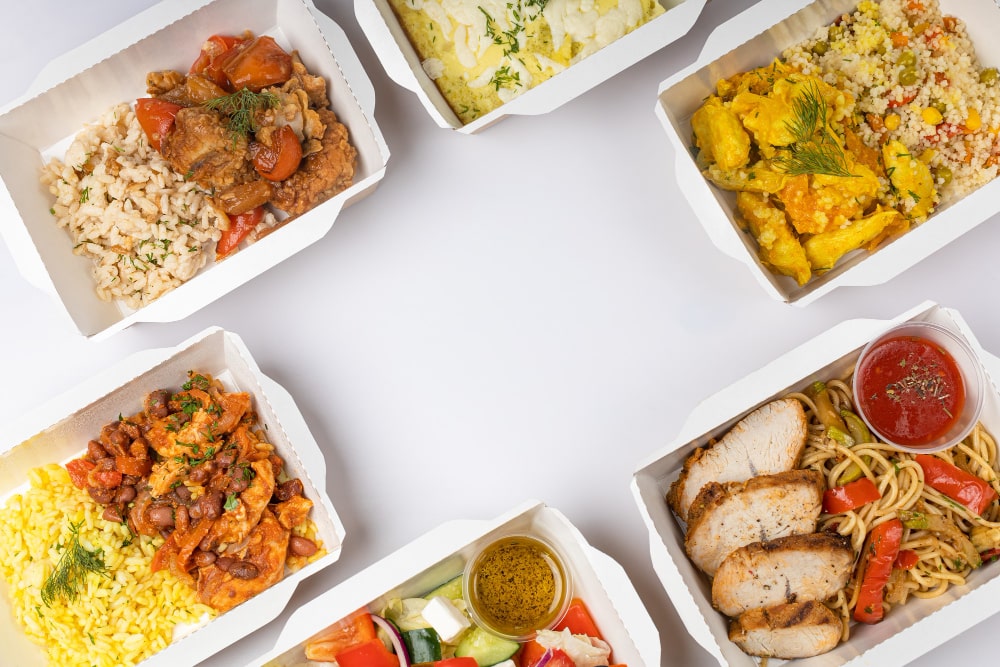
- Avoid pre-packaged and processed foods as much as possible. Not only are they less nutritious, but they also tend to cost more in the long run. Make your own snacks, sweets, chutneys, pickles, papads and more. Homemade versions will be fresher, healthier and cheaper. You’ll save money by making larger batches and storing portions for later.
- When you do buy packaged goods, choose larger sizes and avoid individually wrapped items. Buying in bulk is more budget-friendly and generates less waste. If possible, buy loose produce instead of pre-washed and cut veggies in bags. Wash and chop them yourself – you’ll get more for your money.
13- Use Reusable Bags & Containers: Say No to Plastic

- Bring your own reusable bags and containers when grocery shopping. Plastic bags and containers are terrible for the environment and your wallet.
- Reusable bags and containers eliminate excess packaging and reduce waste. They are durable and long-lasting, so you only have to buy them once. Many stores offer discounts or rewards for bringing your own bags.
- Invest in reusable produce bags, mesh bags perfect for fruits and veggies. Use reusable containers for bulk items like grains, nuts and snacks. Not only do they keep items fresh, but they prevent small pieces from getting lost at the bottom of your pantry.
14- Learning the Art of Checking Expiry Dates: It’s all Relative

- When shopping, check the ‘use by’ and ‘best before’ dates on products and buy items with the longest shelf life remaining. However, expiry dates are not always precise, so use your best judgment. Most non-perishable goods will last at least a few days after the ‘best before’ date, while perishable items like meat, fish, eggs and dairy should be consumed by the ‘use by’ date for safety.
- Canned goods can last 2-5 years, while dried goods like rice, beans, oats and pasta can last 6-12 months. Frozen vegetables and fruits will last 10-12 months, whereas frozen meat will last 3-6 months. Dairy like yogurt and cheese can last 1-2 weeks after opening, even if the best before date has passed. Trust your senses—if it smells, looks and tastes fine, it’s probably still good. But when in doubt, throw it out!
- By carefully checking expiry dates and using common sense, you can cut down on needless food waste and save money. But food safety should always come first, so if there’s any chance an item has spoiled, it’s best to discard it.
15- Fridge Management & Grocery Shopping: Organize Groceries to Increase Shelf Life
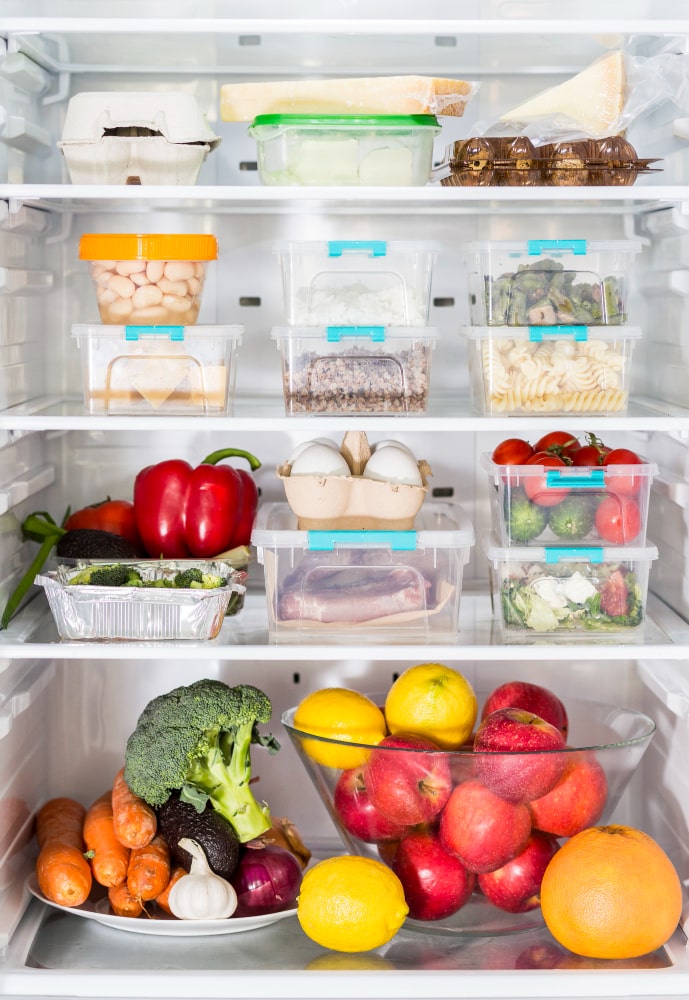
- Keep your fridge organized and you’ll save money by reducing food waste. Group similar items together on shelves – all dairy in one area, produce in another. This makes items easy to spot before they spoil.
- Check ‘best by’ dates and place new items behind existing ones. Use up perishables like meat, seafood, and leafy greens within a week. Most leftovers last 3 to 4 days.
- Keep an inventory list on the fridge door. Note when you bought items and cross them off when finished. This helps ensure nothing gets forgotten at the back of the fridge.
- Use containers to keep foods separated and sealed. Berries, grapes, and greens last longer in the crisper drawer. Keep breads, nuts and snacks in airtight bags or bins.
- Clean your fridge regularly. Wipe up spills immediately and do a deep clean once a month. Remove anything past its prime. A tidy, hygienic fridge means groceries stay fresher longer.
- If you feel you need a bigger fridge and do not have a budget for it, try refrigerator on rent. It is not heavy on your pocket and some extra space is always welcome.
Take Away
So there you have it, 15 easy tips to save money on your grocery shopping bill each and every week. Making a few simple changes to your shopping and eating habits can add up to big savings over time. Meal planning, buying in bulk, using coupons – it may seem like small potatoes but stick with it and you’ll find your grocery shopping budget shrinking steadily each month. Shopping smarter and avoiding waste is better for your wallet and the planet. Give some of these eco-friendly tips a try and watch your grocery shopping bill drop. Before you know it, you’ll be an expert at saving money on food and wonder why you didn’t start sooner. Every penny counts, so start implementing these grocery saving tips today and enjoy the rewards of an affordable, sustainable food budget.

